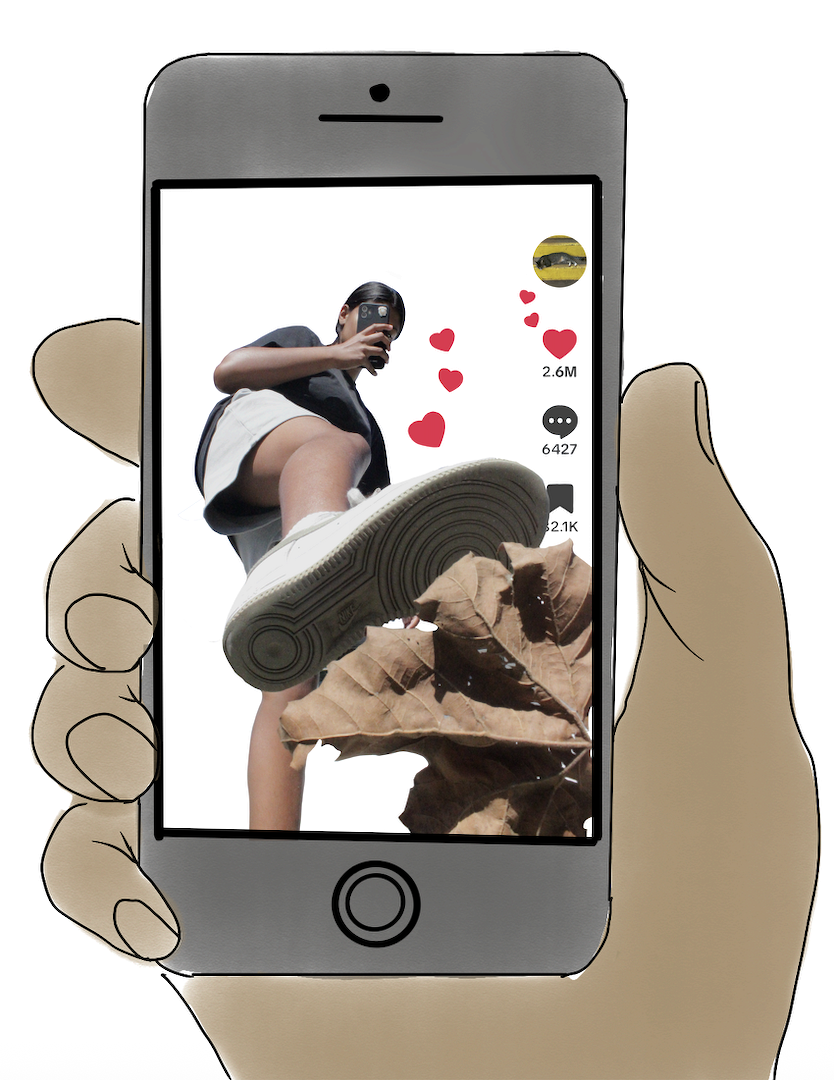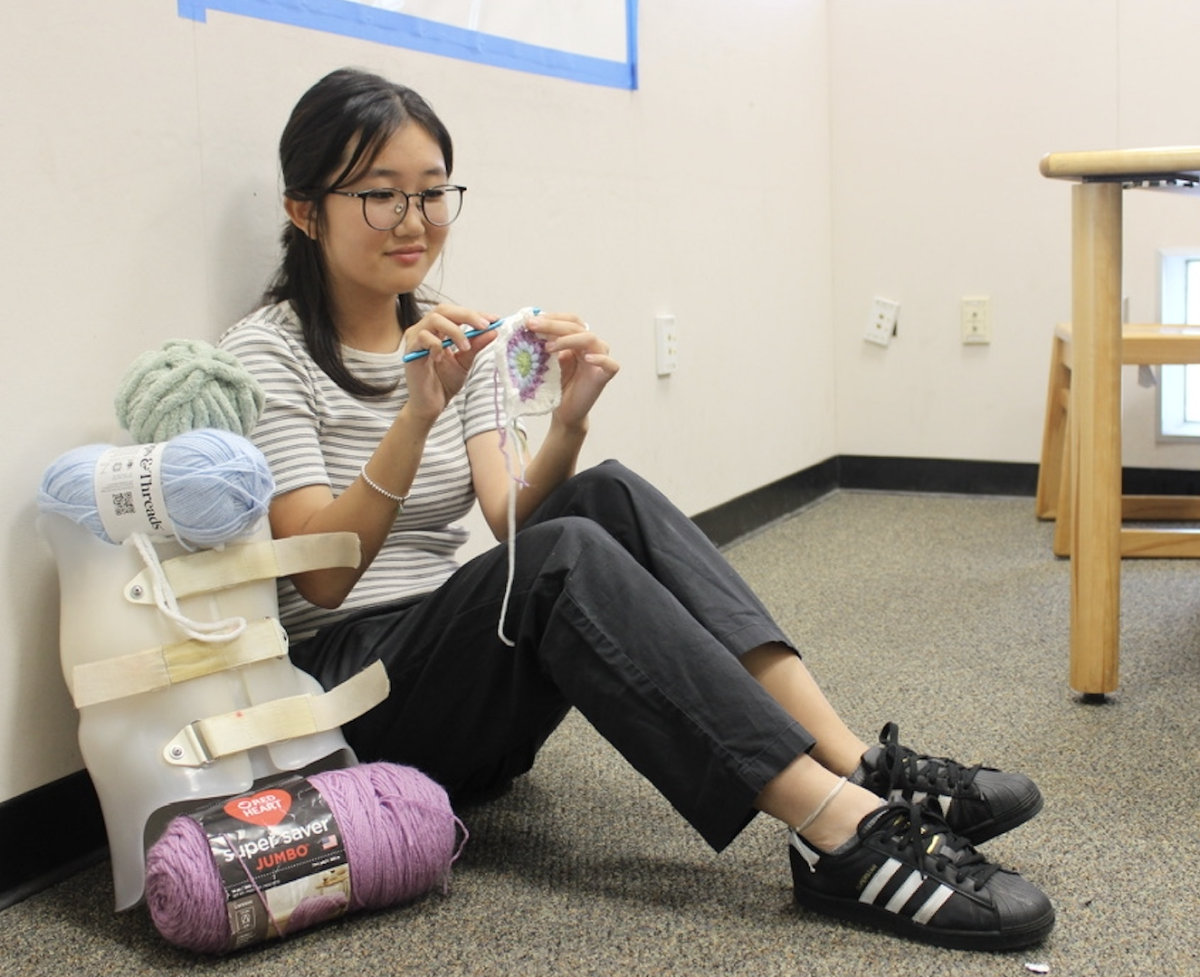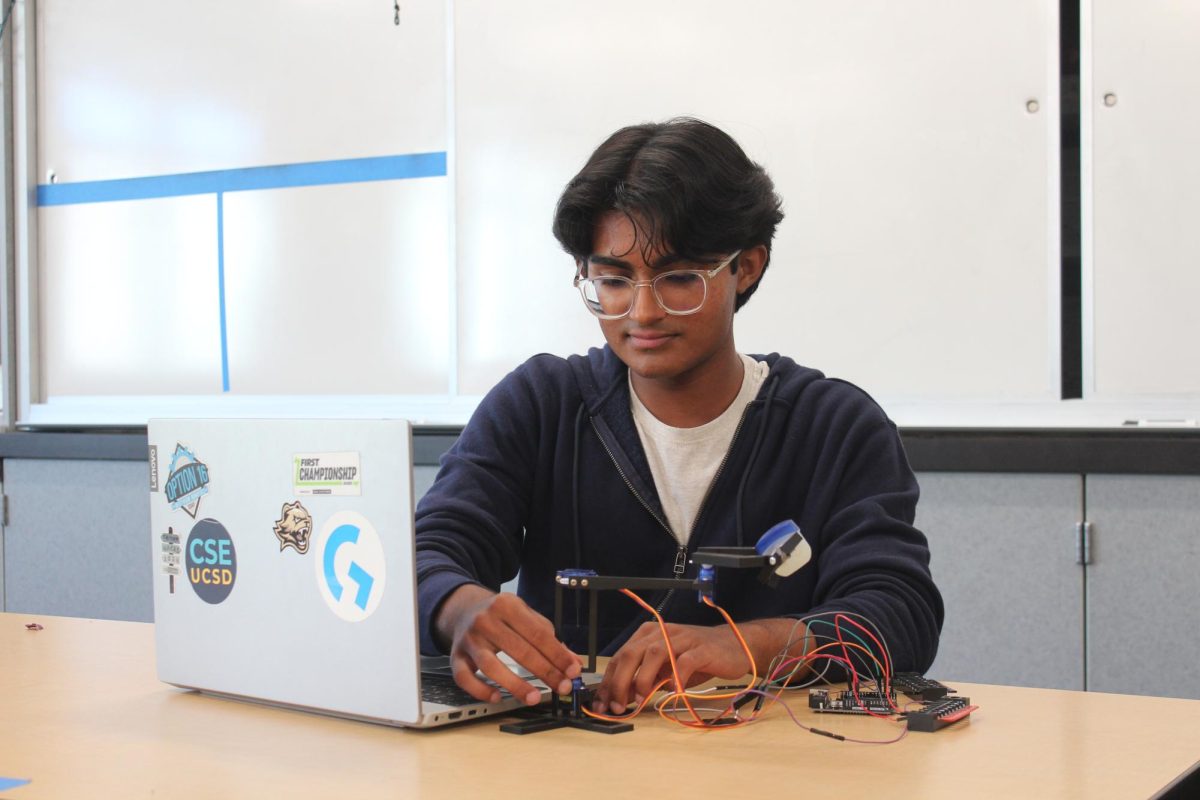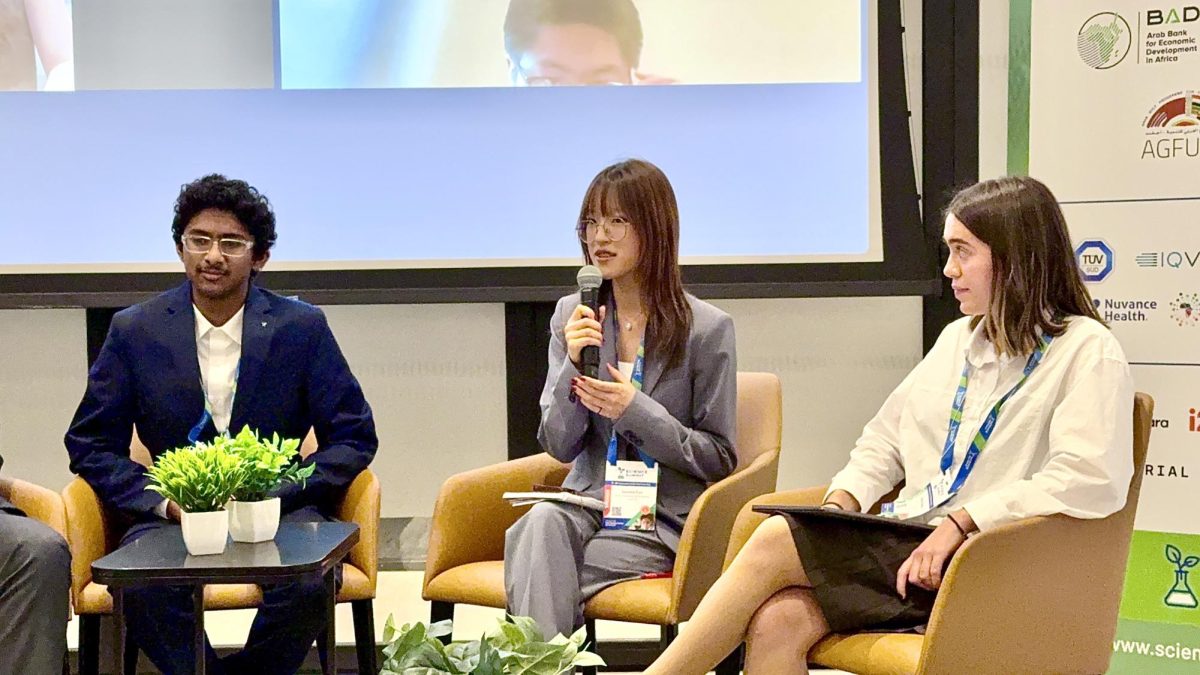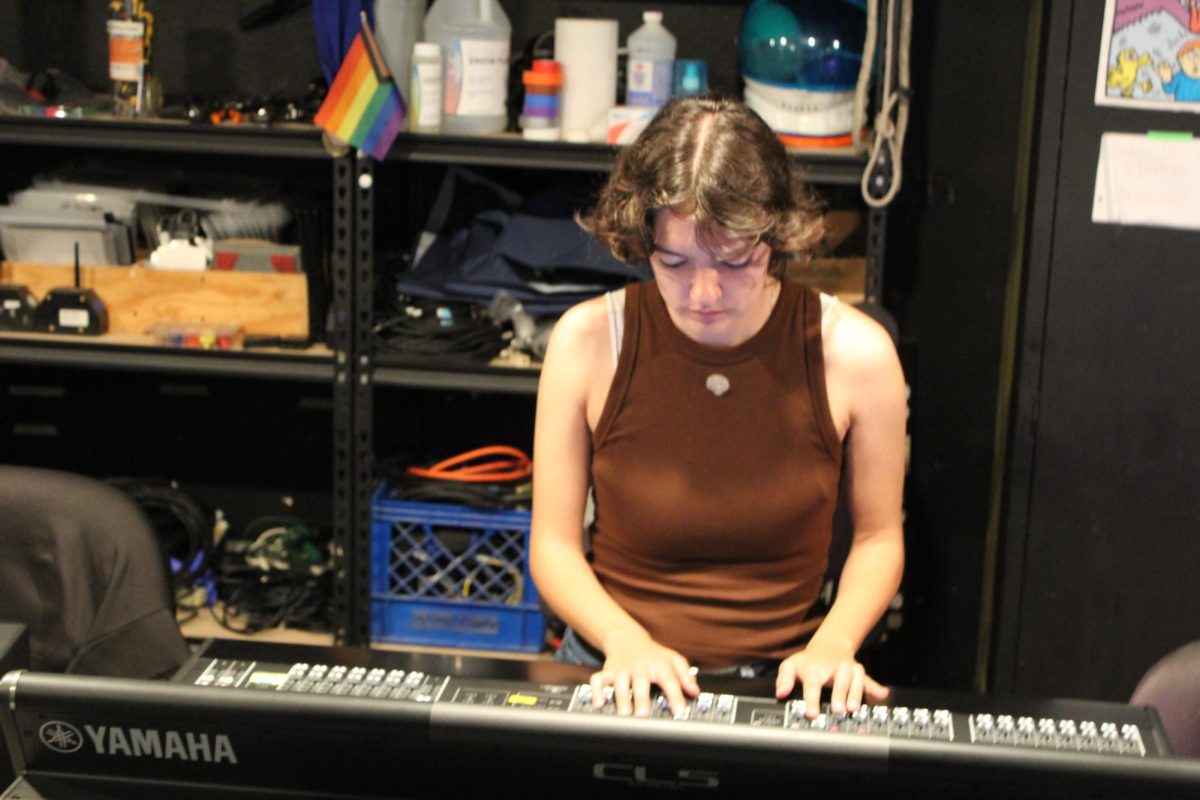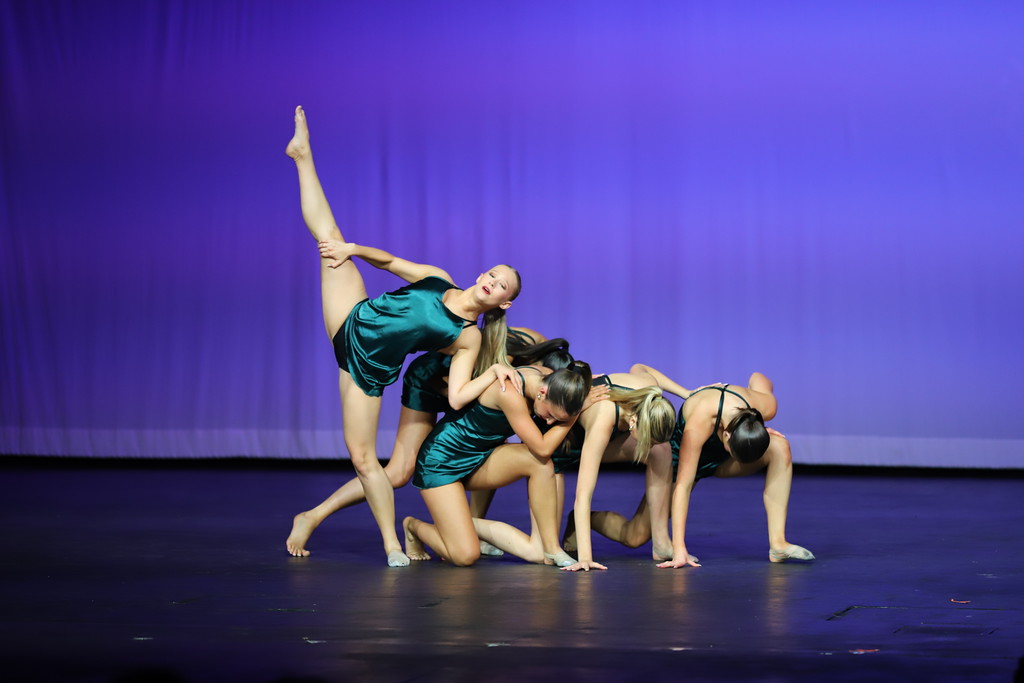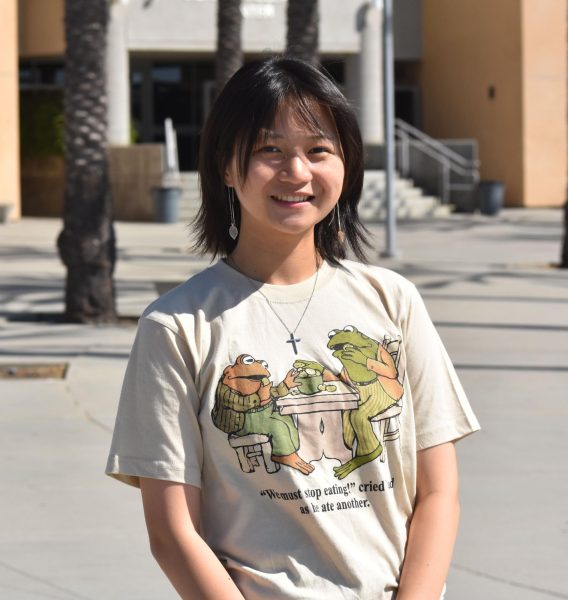As Daisy Shetzer (12) walked through Westview’s crowded hallways her sophomore year, all she could think was, “They’re all staring at me.”
“The only thing they see is how much acne you have.”
Shetzer had always thought of herself as a confident person, most of which sprouted from her years of doing competitive cheer at All-Star Cheer, starting at age 7.
“We were all little girls and everyone wanted to dance in front, and I kept that [mentality] going,” Shetzer said. “Everyone [hypes] you up, telling you ‘look amazing’ as you walk in and just the community that cheer has is so insanely comfortable.”
But that confident persona that she felt so true to was soon met with new insecurities her junior year. Her previously rare acne had started flaring up all over her face and back.
“[I had] constant breakouts and it never went away,” Shetzer said. “Every morning I would wake up and have more acne on my face. It got to a point where I’d be like ‘oh that one’s new and this one’s new,’ and I’d always be thinking about [it].”
No matter how many times Shetzer looked in the mirror or how meticulously she cared for her skin, her acne prevented her from ever viewing herself as beautiful.
It pervaded every image she saw of herself; so much so that she’d avoid looking at any pictures she was in.
“I remember going to Prom and all these dances, having all these great pictures, but I didn’t like how I looked in them,” Shetzer said. “My friends were like ‘you look great,’ but I didn’t want to look like that. I remember thinking [during] everything that I did, every picture I took, every game I went to, in the back of my head I [said] ‘You look like that and they can see it [too]’ and it was [a] struggle.”
Shetzer would spend hours worrying over what she perceived others to be thinking about her. However, after constantly convincing herself that other people’s opinions didn’t matter, she stopped caring.
“It was all in my head,” Shetzer said. “It took time to realize that. No one ever really said anything to me to make me feel [that] way. It was me thinking that they [thought] that. Looking back on it now, I feel bad for who I was and how I didn’t accept myself or how things I couldn’t control affected my life.”
For Jacob Tollefson (11), self acceptance came in a different way, though it didn’t come any easy.
Tollefson had always been insecure of his ethnically mixed facial features.
“A lot of people in my family have bigger noses and I always thought people would look at that when [they] look at me,” Tollefson said. “I would always be nervous going out in public and crowded areas. If my family was going out, I would try to do anything possible to just refrain from doing that. I would be like ‘Oh I’m busy’ or ‘I have other things to do’ when I didn’t. I would try not to socialize with anybody.”
Being the only child of a Chinese mother and a white father, Tollefson felt like he didn’t have anyone who he could relate to or share his insecurities with.
“I’m one of the first mixed people in the family,” Tollefson said. “I didn’t feel like I had anyone to identify with. If you saw a dad and kid in public, you [could usually tell] like ‘Oh that kid looks like he belongs to him.’ I look very different from mine. I feel like I don’t really ‘match’ with him or with anybody.”
He said that it felt like he was trying to live up to someone who felt so different from himself.
“It’s kind of like an identity crisis,” Tollefson said. “I always spent more time with my mom, [but] when I’m with her, I can’t really see myself. Some people have actually questioned [me] in public because I really don’t look like her. People kind of look at me weirdly, and that’s the part that lowers your self-esteem and makes you not want to go out in public.”
When he was younger, most of Tollefson’s all friends were fully one race, not mixed. Because of this, he wasn’t exposed to anyone who looked like him, not fully Chinese but not fully white either.
“I always felt like I looked good, but there was something wrong with my face,” Tollefson said. “I thought it was my eyes because they were the biggest part of my face. I always look at it. I just feel like it doesn’t match my face; my nose, my eyes, it doesn’t match.”
To combat this, Tollefson would try to hide parts of his face whenever someone was taking photos.
“Sometimes I’d take a selfie with friends, but I would cover the upper part [of my face] or I’d only take photos of either the top or bottom,” he said. “I wouldn’t take it with a full face. [When] I’d take a selfie in the mirror, I put my phone in front of my face.”
The comments from others at school didn’t help.
“In my middle school, a lot of girls in math class would call me names,” Tollefson said. “They would call me stuff like ‘big nose’r.”
Tollefson said that whenever he looks in the mirror, he sees himself as neither Chinese nor White.
While Shetzer didn’t have to face any verbal teasing, her acne constantly reminded her of its presence through painful patches of hypersensitive acne.
“I remember getting to a point where I couldn’t lay my face on my hands and if I scratch[ed] my forehead, something would bleed,” Shetzer said. “I [also] had to shower my hair separately from my body because I couldn’t risk the oils from my hair getting on my back. If I didn’t wash my hair separately, I’d break out like crazy. On my face, I had acne everywhere. There was no place that there wasn’t anything.”
The visibility of Shetzer’s condition reached a level of severity where she began planning skin remediation weeks in advance for events that she wanted to look her best at.
“I would get facial extractions, but it bruis[ed] my skin,” Shetzer said. “I would have a bunch of dark spots and then my skin would flake off like a lizard. It’d be dry after and then a week later, my skin would look great. I wouldn’t go to school for the days that I had those bruises. I just couldn’t face other people seeing me.”
At school, Shetzer avoided visibility, wearing hoodies and her hair down to hide her skin, even in the hottest of weathers. In her classes, she would try to sit in a spot where she’d be looked at less.
“I was always nervous that at school I’d accidentally scratch my face and something would bleed,” Shetzer said. “I’d sit in the front row or off to the side so that the people behind me wouldn’t see me”
The mental toll that going to school had on Shetzer made her decide to stay at home, with the approval of her mother, very frequently.
“A lot of the time when I was ‘sick’ or I ‘didn’t feel well,’ it was because I didn’t want to go to school with giant bruises on my face,” Shetzer said.
She said she felt torn between the confident self she’d always identified with and the newfound shame she felt for how she looked.
“I feel like I’m such a strong person and I’m confident,” Shetzer said. “I’m big and I’m tall and I’m really strong and I can lift a person over my head, but I cannot do with [having] something on my face. I felt so ashamed, embarrassed, and weak overall, and I don’t like feeling weak.”
Month after month, Shetzer faced an endless amount of internal turmoil, questioning herself and what the people around her were thinking.
Midway through her junior year, Shetzer decided to start regularly attending school again.
“I would go back to school whenever my acne started to calm down, [and] eventually hype myself up enough to go to class and try to not worry about what others might be thinking,” Shetzer said. “[However], every time I got back to school, I felt horrible again. I felt judged, ashamed, embarrassed, ugly, angry– I just overall didn’t want to be there. I would just pray for the day to speed up and go by as fast as it possibly could.”
Eventually, Shetzer started to gain her confidence back.
“I would say to myself ‘no one’s looking, no one cares’ as I was walking and eventually I just started believing that,” Shetzer said. “I was at a point where I really didn’t care. I didn’t care what people thought of me. I was just tired of caring. Going from being confident to caring what people think was exhausting.”
The insecurities that Shetzer so desperately wanted gone were starting to weigh on her mind less and less.
“I started to dress for what I wanted and not what I thought would distract people from my acne,” Shetzer said. “My confidence went beyond feeling better about my body, my clothes, what I posted on social media, being at practice, [and] how I acted around everyone. I became the most honest version of myself. The only thing that matters to me is what I think about myself.”
Tollefson was able to find his self confidence through social media as he discovered that he wasn’t alone in his struggles.
“On social media, there’s these accounts you can look at that give support to people who have an identity crisis issue [where] they feel like they don’t fit in,” Tollefson said. “I looked at [those photos] and I’m like ‘I’m not the only one out there.’ It took a lot of [self] persuading.”
Out of all those posts, one made an especially large impact on him.
“There was this post that showed a line of people who are all looking at their phones and comparing themselves to people who were [also] looking at their phones,” Tollefson said. “Everybody [was] comparing themselves to everybody else.”
That thinking completely changed his perspective on insecurities.
“I didn’t know other people had the same problem, but I feel like social media actually helped me out [because] I could see other people who had the same exact problems,” Tollefson said. “It was hard to overcome a lot of facial insecurities that I had, but at the end of the day, people might remember, but why should I care about what others think of me? It is what it is.”


